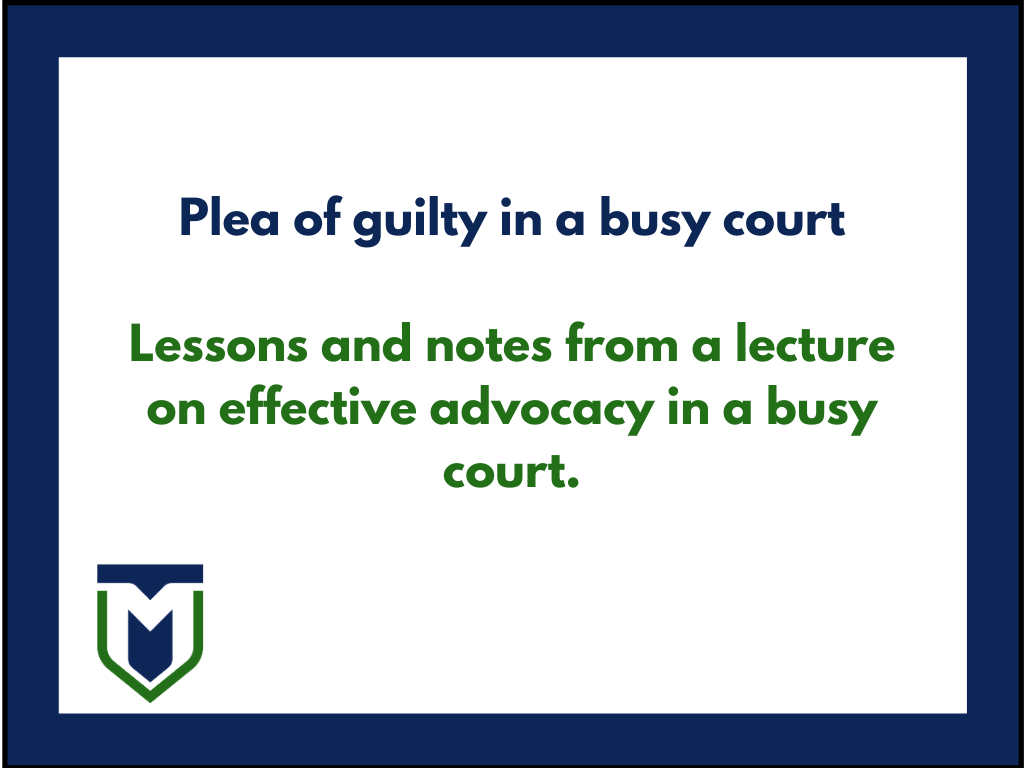In the R v Smith appeal, the appellant contested the sentence imposed and several facts which formed part of the agreed factual basis she was sentenced on. Ultimately, the appeal was dismissed, and the head sentence of 3 years suspended after 9 months for 5 years remained for the charges of Fraud and Obstruction of justice.
For sentences/pleas of guilty in the Magistrates Court, the District Court, and the Supreme Court an “Agreed Statement of Facts” is used by the parties to identify the factual basis the defendant is being sentenced on. This avoids any surprises by either side and assists the court to be clear about what happened and what the defendant is being sentenced for.
In the Smith appeal the agreed schedule of facts included that when posting the car for sale, Ms Smith did not mention that the car was under a lease. After she had been sentenced, Ms Smith sought challenge some of the agreed facts, saying for example that she did not know she had to advise the car was under a lease.
These challenges however did not impact her case. Why?
When reviewing charges, Criminal lawyers are evaluating the facts and evidence against the elements of the offence our client has been charged with. In this case the facts Ms Smith sought to challenge facts that did not impact the elements of the offence, or her culpability, in any material way.
A break down and example of the elements of fraud can be found here.
This appeal related to the charge or fraud. And while we do not know what sub-section of fraud in the Criminal Code Ms Smith was charged and sentenced under, we can make some assumptions for the point of demonstrating how “elements” of offences work.
We can break it down like this, the elements of fraud are:
- A person:
- Obtains property from any person:
- Dishonestly:
Applying the facts to the elements we get the below:
- A person: Ms Smith.
- Obtains property from any person: The money Ms Smith obtained from selling the car.
- Dishonestly: Selling a car that she knew was leased without the agreement of the lessor. Arguably the funds should have been paid to the financier or transferred to the financier (depending on the contract) not used to pay gym memberships, school fees and other living expenses.
Bearing in mind the agreed facts, Ms Smith’s challenge to the facts, even if accepted, would not change the elements of the charge. In relation to advertising without stating the car was leased, which Ms Smith said she did not believe was a requirement, Justice Morrison said “That is of no moment in light of the admitted fraud, which was to sell the car without seeking or obtaining the lessor’s consent, and without paying the lessor”.
For the client, sometimes everything feels relevant and important. While it might feel important, sometimes it is just not relevant and the fact the client wants to argue over might be pointless.
It falls on the solicitor to explain this to the client. Continued push back on a schedule of facts may result in a contested fact sentence or losing the ability to negotiate further. Taking this approach may run up legal costs needlessly, especially where the contested fact does not have a sufficiently relevant connection to the elements of the offence.
For the lawyers, it is not just about getting the facts signed to cover our risk it is also about making sure the client understands what is happening and why.


